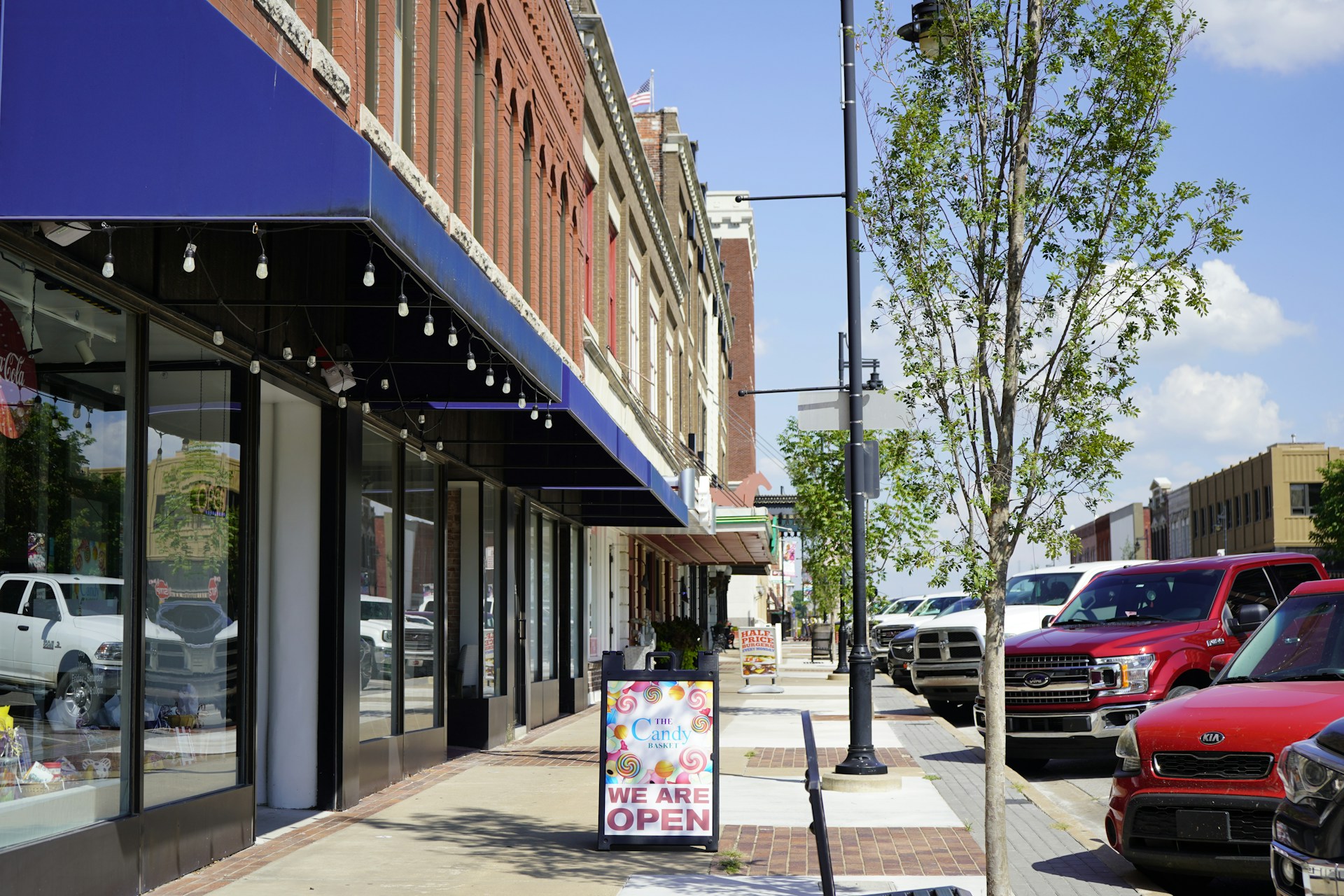Launching a construction franchise requires significant capital, especially when establishing a physical location. For many franchise owners, securing adequate funding is one of the biggest hurdles to getting their business off the ground. However, with the right financing strategy, turning your franchise ownership dreams into reality is possible.
At EB3 Construction, we’ve guided numerous franchisees through the process of financing their construction projects. We know firsthand that navigating the various options can feel overwhelming. Should you pursue an SBA loan? Take out a conventional bank loan? Tap into your retirement savings? Or bring on equity investors?
The truth is, there’s no one-size-fits-all solution when it comes to franchise construction financing. The best approach depends on your specific financial situation, risk tolerance, and long-term business goals. That’s why it’s crucial to carefully weigh the pros and cons of each option before making a decision.
In this article, we’ll break down the most common financing routes available to construction franchise owners. We will explore how each option works, who it’s best suited for, and what to watch out for. By the end, you’ll have a clear roadmap for choosing the financing solution that aligns with your vision for franchise success.
What Are SBA Loan Options for Franchise Construction?

SBA loans provide excellent financing options for franchise construction projects. The two primary programs franchisees should consider are SBA 7(a) loans and SBA 504 loans. Here are the main features of each:
SBA 7(a) Loans
The SBA 7(a) program offers several advantages for franchise construction:
- Loan amounts up to $5 million
- Terms up to 25 years for real estate and construction
- Lower equity requirements – typically only 10% down
- Long repayment periods result in lower monthly payments
- Can be used for a variety of purposes beyond just construction
However, 7(a) loans require personal guarantees from owners with a 20% or greater stake in the business. This means your personal assets might be at risk if the franchise fails to repay the loan.
SBA 504 Loans
The 504 loan program is specifically designed for major fixed asset purchases such as real estate and new construction. Key features include:
- Loan amounts up to $5 million
- Long-term, fixed-rate financing
- As little as a 10% down payment
- No personal guarantee on the CDC portion of the loan
The 504 program involves slightly higher fees and a more complex structure with multiple lenders. However, the fixed interest rate can offer more predictable payments over the loan’s duration.
Choosing the Right Option
When deciding between 7(a) and 504 loans for your franchise construction project, consider factors such as:
- Total project costs and how much you need to borrow
- Whether you need additional working capital beyond construction costs
- Your comfort level with variable versus fixed interest rates
- How much equity you can invest upfront
Both SBA loan programs offer considerable advantages over conventional financing, with lower down payments and longer terms to improve cash flow as you launch your franchise location. An experienced SBA lender can help you determine which option best suits your specific franchise construction needs.
| Feature | SBA 7(a) Loans | SBA 504 Loans |
|---|---|---|
| Loan Amounts | Up to $5 million | Up to $5 million |
| Repayment Terms | Up to 25 years for real estate and construction | Long-term, fixed-rate financing |
| Down Payment | Typically 10% down | As little as 10% down |
| Personal Guarantee | Required for owners with 20%+ stake | No personal guarantee on the CDC portion |
| Interest Rates | May vary | Fixed interest rate |
| Use of Funds | Varied purposes beyond construction | Major fixed asset purchases like real estate and construction |
How Do Conventional Bank Loans Work for Franchise Construction?
Conventional bank loans and lines of credit can be an attractive financing option for franchise owners aiming to fund construction projects. These loans typically offer a lower cost of capital compared to SBA loans, with reduced origination fees and competitive interest rates. For franchisees with strong financials and an established track record, conventional financing may provide a quicker path to commencing construction.
However, conventional construction loans come with important trade-offs. While SBA loans are designed to support new businesses, traditional banks generally have stricter qualification criteria. This means startup franchises or those without several years of proven financial performance may struggle to get approved. Banks often require a larger down payment or personal investment from the franchise owner to offset perceived risks.
The repayment terms on conventional loans also tend to be shorter than SBA options—ranging from 5 to 10 years for commercial construction projects. These shorter terms translate to higher monthly payments, which can put significant pressure on a new franchise’s cash flow during the critical first few years of operation. Franchise owners need to carefully forecast their revenue and expense projections to ensure they can manage these larger payments while launching their new location.
Conventional financing avoids some of the red tape and lengthy processing times associated with government-backed loans. For franchise owners on a tight timeline to open their doors, a conventional construction loan may better align with their schedule. The streamlined underwriting can sometimes result in funding within 30-60 days for qualified borrowers.
When evaluating conventional loans for franchise construction, key factors to consider include:
- Down payment requirements (often 20-30% for commercial construction)
- Interest rates and fee structures
- Prepayment penalties
- Collateral expectations
- Construction draw schedules and inspection requirements
We recommend franchisees obtain quotes from multiple lenders to compare terms. Having a detailed business plan, realistic financial projections, and a clear construction budget can strengthen your loan application. An experienced commercial real estate attorney can also help review loan documents to ensure the terms align with your franchise agreement and construction timeline.
For franchise owners with significant equity or assets to leverage, conventional bank financing may offer the flexibility and speed needed to capitalize on prime real estate opportunities. However, those just starting out may find SBA loans provide more attainable terms for getting their first location started. Carefully weigh the pros and cons of each option in the context of your specific franchise’s financial position and growth objectives.
What Alternative Financing Methods Can Fund Franchise Construction?

For franchise owners who may not qualify for traditional bank loans, several alternative financing options are available for construction projects. Here are some creative approaches that could help get your franchise location up and running:
Rollover as Business Startups (ROBS)
ROBS allows entrepreneurs to use their 401(k) funds without incurring early withdrawal penalties. This can be an attractive option for those with substantial retirement savings, as it provides access to capital without taking on debt. Some key points about ROBS:
- Low cost of capital – no interest payments or fees
- Retains full ownership and control of the business
- Complex setup process – requires expert guidance to remain compliant
- Puts retirement savings at risk if the franchise fails
While ROBS can provide quick access to funds, it’s important to carefully weigh the potential impact on your future financial security before pursuing this route.
Equity Investors
Bringing on equity investors, whether outside partners or family members, is another way to fund franchise construction without relying on traditional loans. This approach offers some unique advantages:
- No large upfront costs or interest payments
- Investors may provide valuable business expertise
- Shared risk if the venture underperforms
However, equity financing also comes with trade-offs:
- Giving up a portion of ownership and future profits
- Potential conflicts over business decisions
- May prove more expensive long-term than fixed-rate loans
Carefully vet potential investors and ensure your visions align before entering any partnership agreements.
Cash Financing
For franchise owners with substantial personal savings, using cash to fund construction offers maximum control and flexibility. Benefits of cash financing include:
- No debt or interest payments
- Quicker project timeline without loan approvals
- Full retention of profits and ownership
However, depleting cash reserves comes with significant risks:
- Less financial cushion for unexpected costs or slow initial sales
- Opportunity cost of not investing those funds elsewhere
- Potential cash flow issues for ongoing operations
Carefully analyze your financial situation and projected cash needs before committing personal funds to construction costs.
Choosing the right financing approach for your franchise construction project is a highly personal decision that depends on your unique circumstances, risk tolerance, and long-term goals. We recommend consulting with a financial advisor who can help you evaluate these alternatives in the context of your overall financial picture. With careful planning and the right funding strategy, you will be well-positioned to bring your franchise vision to life.
How Can Construction Loans Specifically Benefit Franchise Locations?
Construction loans offer unique advantages for franchise owners looking to build new locations or revamp existing spaces. These specialized financing options acknowledge a fundamental truth of franchising success: location is critical, and establishing that perfect spot often requires significant construction or renovation work.
Financial institutions that cater to franchise needs, like Stearns Bank, have developed streamlined construction loan programs tailored for the franchise model. These lenders recognize the time-sensitive nature of franchise development and have optimized their processes accordingly. Key benefits include:
Accelerated Approval and Funding
With in-house underwriting and approval processes, franchise-focused lenders can significantly reduce the time from application to funding. This quick turnaround ensures that franchise owners can secure financing on a schedule that aligns with their development timetable, preventing costly delays.
Flexibility to Match Franchise Needs
Construction loans for franchises often offer more flexible terms than traditional commercial construction financing. Lenders understand the unique cash flow patterns of new franchise locations and can structure repayment schedules that accommodate the initial ramp-up period.
Simplified Documentation
Recognizing that franchise owners juggle multiple priorities during construction, many lenders have streamlined their documentation requirements. This simplification reduces the administrative burden, allowing franchise owners to focus more on getting their new location up and running.
Direct Access to Decision Makers
Some franchise-oriented lenders provide borrowers with direct access to key decision-makers within their organization. This open line of communication can be invaluable when unexpected issues arise during construction, allowing for the quick resolution of any financing hurdles.
Cost-Effective Solutions
By specializing in franchise construction, these lenders can often offer more competitive rates and terms. They understand the risk profile of established franchise brands and can price their loans accordingly, potentially saving franchise owners significant money over the life of the loan.
For example, a franchise owner looking to renovate an existing space for a new quick-service restaurant location might benefit from a construction loan that releases funds in stages as the project progresses. This approach ensures that capital is available exactly when needed for each phase of the renovation, from initial demolition work to final equipment installation.
Similarly, an owner building a new hotel franchise from the ground up could leverage a construction loan with interest-only payments during the building phase. This structure helps manage cash flow during the critical period before the property begins generating revenue.
By offering tailored solutions that address the specific challenges of franchise construction projects, these specialized loans play a crucial role in keeping developments on track and within budget. For franchise owners, this targeted financial support can mean the difference between a smooth, efficient build-out process and one plagued by delays and cost overruns.
| Aspect | Traditional Construction Loans | Franchise-Specific Construction Loans |
|---|---|---|
| Approval Time | Longer processing times | Accelerated approval and funding |
| Flexibility | Standard commercial terms | Customizable to match franchise needs |
| Documentation | Extensive documentation requirements | Simplified documentation process |
| Decision Making | Limited access to decision makers | Direct access to key decision-makers |
| Cost | Varies based on risk and lender | More competitive rates for established brands |
Ultimately, construction loans designed for franchises do more than just provide capital—they offer a financial partnership that understands and supports the unique journey of bringing a new franchise location to life. By aligning financing with the practical realities of franchise development, these loans help lay a solid foundation for long-term success in the competitive world of franchising.
Conclusion: Selecting the Right Financing for Your Franchise Construction Project

Choosing the optimal financing option for your franchise construction project involves careful consideration of each funding method’s advantages and limitations. SBA loans offer attractive terms, such as longer repayment periods and lower down payments, but come with specific requirements and fees that may not suit every situation. Conventional bank loans typically provide faster processing but often demand larger down payments and higher monthly payments. Alternatives like using retirement funds through ROBS, bringing on equity investors, or self-funding with cash each come with their distinct benefits and risks to assess.
To increase your chances of securing the right financing solution, consider taking these key steps:
- Create a detailed, structured business plan that clearly outlines your franchise’s growth strategy and construction needs.
- Develop a strong track record of accomplishments and financial performance to demonstrate your capability as a franchisee.
- Thoroughly research and understand how each financial solution aligns with your specific situation and goals.
- Consider consulting with financial advisors or franchise-focused lenders for expert guidance.
By carefully evaluating your options and preparing a compelling case for financing, you’ll be well-positioned to obtain the funding needed to bring your franchise construction project to life. With the right approach, financing can be a powerful tool to fuel your business growth and set the stage for long-term success as a franchise owner.
To explore franchise financing options tailored to your needs, contact our team for a personalized consultation.




